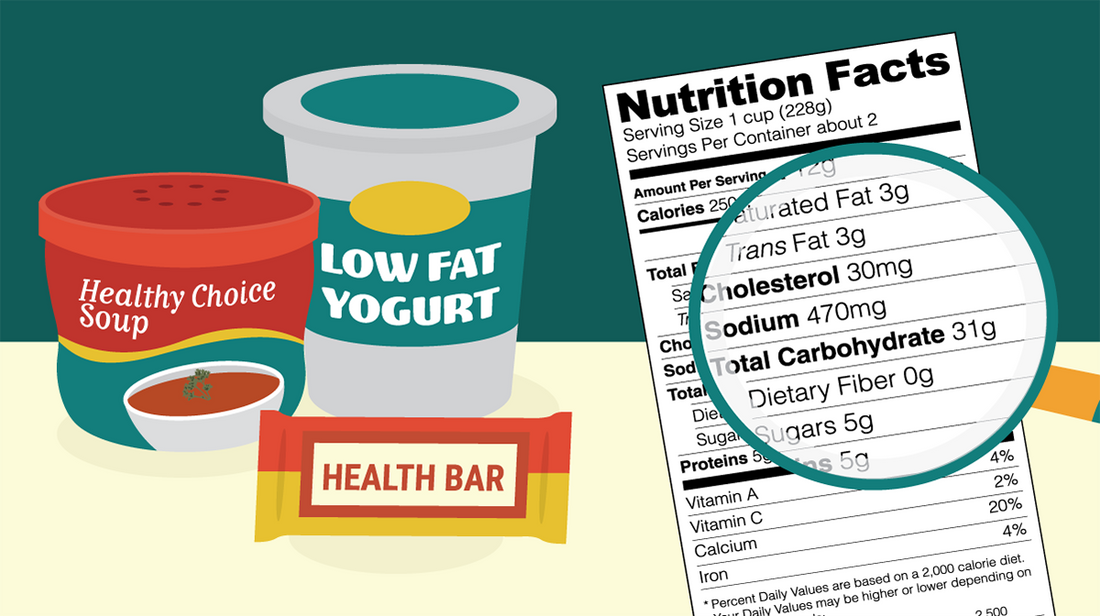
The Rise of Clean Label Foods: A Global Trend
Yash AgrawalShare
The global food landscape is undergoing a significant transformation, driven by a growing awareness of health and wellness. Consumers worldwide are increasingly scrutinizing food labels, seeking out products with clean, recognizable ingredients. This shift towards clean label foods is particularly evident in India, the United States, and among the Indian diaspora.
The Clean Label Movement: A Closer Look
Clean label foods are characterized by their simple, recognizable ingredient lists. They typically avoid artificial additives, preservatives, and synthetic chemicals. This movement is fueled by several factors:
- Health Consciousness: Consumers are becoming more aware of the link between diet and overall health. They are seeking out foods that are free from harmful additives and promote well-being.
- Transparency and Trust: People want to know what they are eating. Clean label products offer transparency, allowing consumers to make informed choices.
- Allergy and Sensitivity Concerns: Many individuals suffer from food allergies or sensitivities. Clean label products often cater to these needs by avoiding common allergens.
- Ethical and Sustainable Consumption: Consumers are increasingly concerned about the environmental and social impact of their food choices. Clean label products often align with sustainable practices.
India: Embracing Ancient Wisdom
India, with its rich culinary heritage, is experiencing a resurgence of traditional and healthy eating habits. Millets, once a staple food, are making a comeback, replacing refined grains like wheat and rice. These nutrient-rich grains offer numerous health benefits, including improved digestion, lower blood sugar levels, and higher fiber content.
The Indian diaspora, spread across the globe, is also embracing clean label foods. They are seeking out authentic Indian flavors and ingredients, often combining them with Western culinary techniques. This fusion cuisine emphasizes the use of fresh, natural ingredients, aligning with the global clean label trend.
The United States: A Pioneer in Clean Label
The United States has been at the forefront of the clean label movement. American consumers have long been demanding transparency and simplicity in food products. The country has seen a surge in demand for organic, non-GMO, and gluten-free foods. Moreover, the rise of plant-based diets has further fueled the growth of clean label products.
The Global Shift: A Paradigm Change
The global shift towards clean label foods is a testament to the evolving consumer mindset. People are no longer satisfied with processed, artificial foods. They are seeking out products that nourish their bodies and minds. As the demand for clean label foods continues to grow, we can expect to see further innovation in the food industry, with a focus on transparency, sustainability, and health.
Shifts We're Seeing in the Food Industry
The food industry is undergoing a significant transformation, driven by increasing consumer awareness and changing dietary preferences. Here are some notable shifts we're already witnessing:
1. Rise of Plant-Based and Vegan Diets
- Plant-Based Alternatives: More and more people are opting for plant-based alternatives to meat, dairy, and eggs. This has led to the proliferation of plant-based burgers, milk, cheese, and other products.
- Vegan and Vegetarian Options: Restaurants and food manufacturers are expanding their offerings to include a wider range of vegan and vegetarian options, accommodating diverse dietary needs.
2. Focus on Clean Label and Natural Ingredients
- Transparent Labeling: Consumers are demanding transparency in food labeling. They are looking for products with simple, recognizable ingredients and minimal additives.
- Natural and Organic: There's a strong preference for natural and organic food products, as people seek to reduce their exposure to artificial chemicals and preservatives.
3. Functional Foods and Superfoods
- Health Benefits: Consumers are actively seeking foods that offer specific health benefits beyond basic nutrition. Functional foods like probiotics, omega-3-rich foods, and antioxidant-packed berries are gaining popularity.
- Personalized Nutrition: As genetic testing becomes more accessible, people are tailoring their diets based on their individual needs and preferences.
4. Sustainable and Ethical Sourcing
- Ethical Consumption: Consumers are increasingly concerned about the ethical and environmental impact of their food choices. They are supporting brands that prioritize sustainable farming practices and fair labor standards.
- Local and Seasonal: There's a growing trend towards consuming locally sourced and seasonally available foods, reducing the carbon footprint of food production and distribution.
5. Food Delivery and Meal Kits
- Convenience: The convenience of food delivery services and meal kits has revolutionized the way people eat. These services cater to busy lifestyles and offer a variety of cuisines and dietary options.
- Personalized Dining: Meal kits allow consumers to customize their meals, tailoring them to their specific preferences and dietary restrictions.
These shifts are reshaping the food industry, driving innovation and creating new opportunities for businesses that align with consumer preferences and values.
